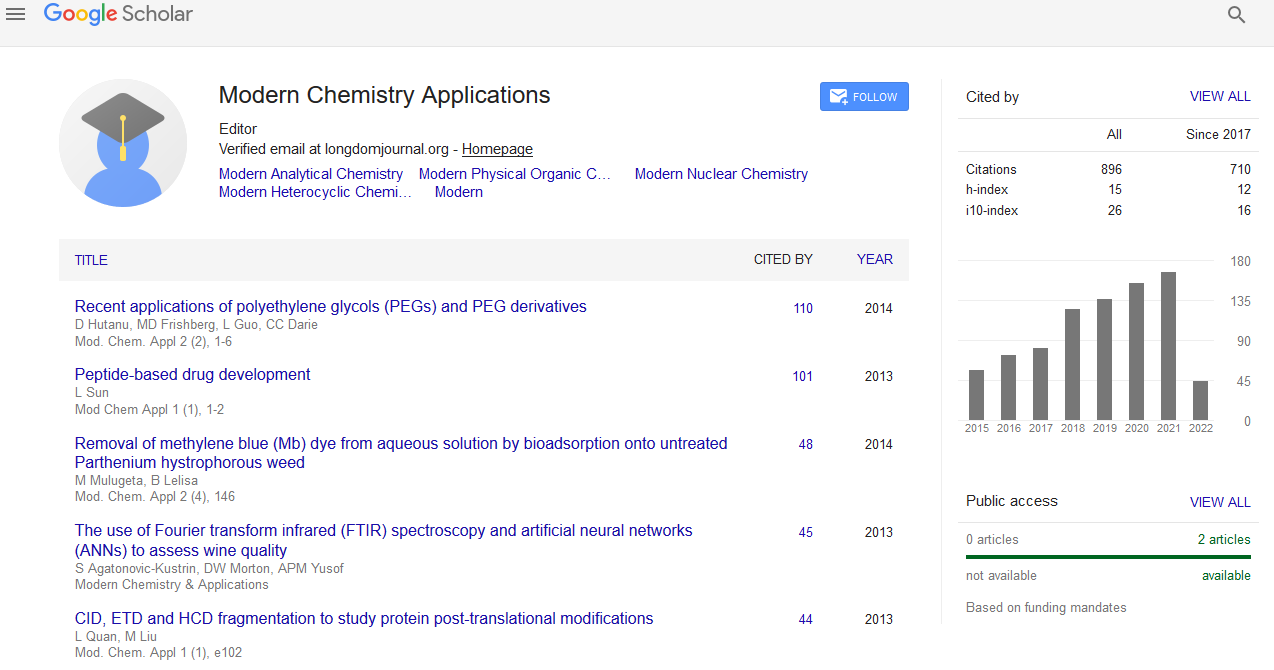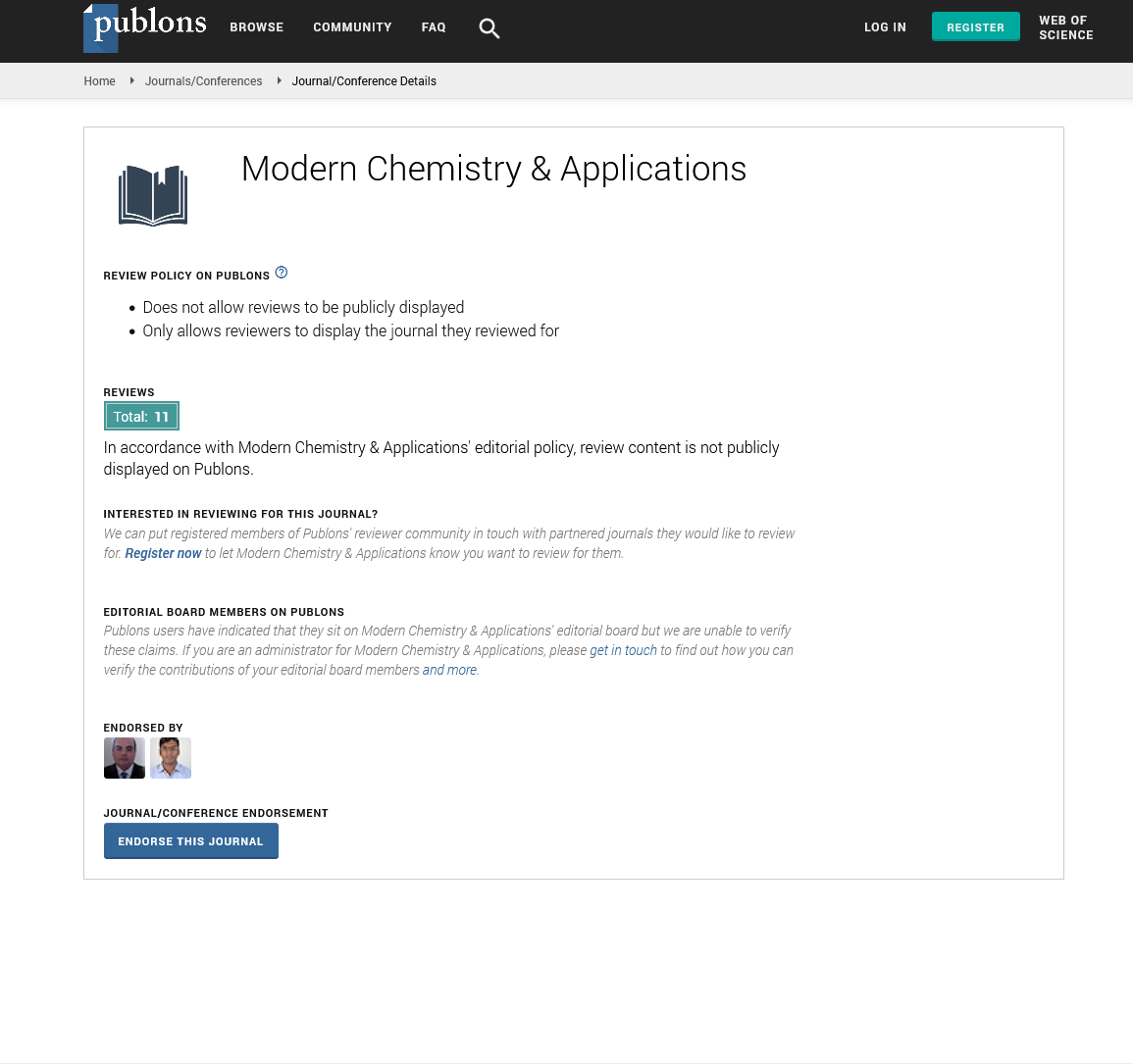Indexed In
- Open J Gate
- JournalTOCs
- RefSeek
- Hamdard University
- EBSCO A-Z
- OCLC- WorldCat
- Scholarsteer
- Publons
- Geneva Foundation for Medical Education and Research
- Google Scholar
Useful Links
Share This Page
Journal Flyer

Open Access Journals
- Agri and Aquaculture
- Biochemistry
- Bioinformatics & Systems Biology
- Business & Management
- Chemistry
- Clinical Sciences
- Engineering
- Food & Nutrition
- General Science
- Genetics & Molecular Biology
- Immunology & Microbiology
- Medical Sciences
- Neuroscience & Psychology
- Nursing & Health Care
- Pharmaceutical Sciences
Abstract
Anti-Convulsant Drug Valproic Acid in Cancers and in Combination Anti-Cancer Therapeutics
The traditional anti-convulsant drug Valproic Acid (VPA) has been found to be involved in suppressing cancer progression while modulating various cancer-associated signaling pathways. In particular, VPA acts as either a Histone Deacetylase (HDAC) inhibitor or a Notch signaling activator in suppressing tumor growth. VPA is less toxic, and by itself, has limited anti-tumor effects. Thus, VPA has been used as an adjuvant in combination with a variety of other anti-cancer agents for many types of cancers. These combination strategies display potential applications in cancer treatments. In particular, VPA could up-regulate certain G Protein-Coupled Receptors (GPCRs) in some cancer cells. Some of these GPCRs are highly expressed naturally in many cancer cells and these characteristics have been applied towards novel enhanced combination therapeutics with VPA and specific receptor-targeted cytotoxic peptide-drug conjugates.


